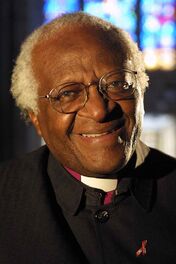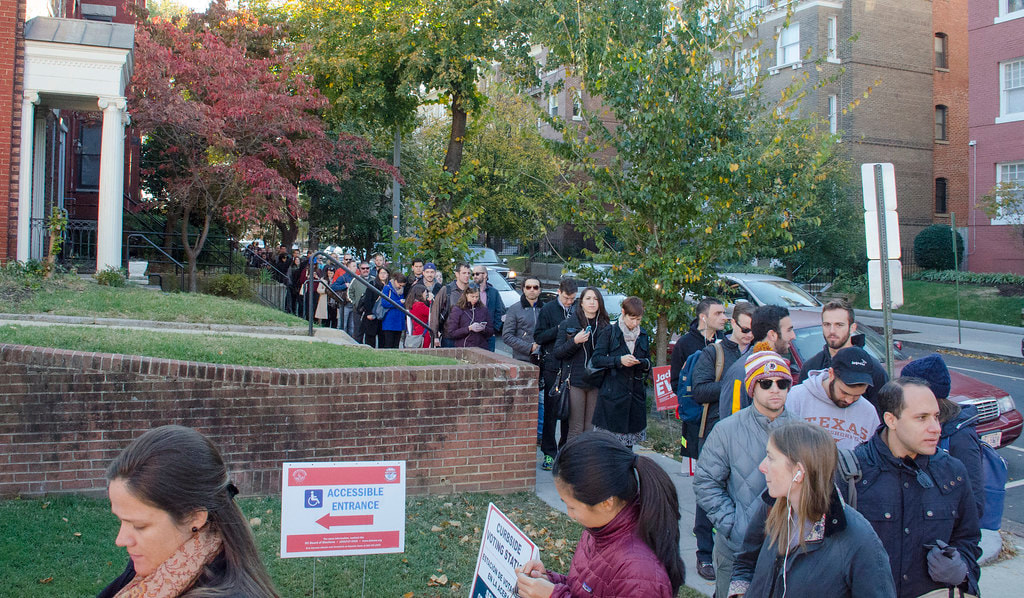|
11/28/2020 0 Comments The Sunday Sermon: Forgivenessby the Reverend Kevin McGrane Deacon Kevin delivered this sermon on November 8, 2020. As many of you may know, there was a political election last Tuesday. If you didn’t know that, well, it’s too late to vote. I have been following the news regarding the election results, as well as the thoughts and opinions of many of my family and friends on social media, and I see a couple of overarching themes among them. Most people are disappointed in the results, whether their chosen candidates or propositions won or lost. You would think that, if someone’s candidate or proposition won, they’d be happy...but lots of folks aren’t. They seem to be just as disappointed as the person whose candidate or prop lost the election. It seems like they can’t be happy about the results because they did not get something else that they were hoping for, perhaps even more than winning. And that is the satisfaction of repudiation. In various ways from various people, I read and hear the same theme repeated over and over: they had hoped for a giant wave of votes to repudiate their opponents. They were longing for a tidal wave of disapproval and rejection of the people and propositions they opposed, and send a message to their opponents: you are wrong, you are evil, and no one approves of you or what you support. And that just didn’t happen. No one swept into office, or was overwhelmingly confirmed to remain in office, and few, if any, propositions were adopted in a landslide. Nearly everyone and everything won or lost by the thinnest of margins. And many of us are feeling oddly unfulfilled...we expected to be vindicated, but we weren’t. And we are still angry, still hurting, and profoundly disappointed. So, what do we do? How do we move forward into our tomorrow? Because, you know, there will be a tomorrow. How do we embrace a future that includes no more anger, no more pain, no more strife, no more civil warfare? How do we heal, and become whole again, because no one in their right mind wants to live like this, under constant trauma and stress and smoldering anger. We long to be whole again. There is a suggestion about all this by a very wise man by the name of Desmond Tutu: he said “There can be no future without forgiveness.”  Archbishop Tutu. Public domain. Archbishop Tutu. Public domain. Desmond Tutu is the retired bishop of South Africa, part of the Anglican Communion, and he was a figure of the peace movement against apartheid, the horrible racist set of laws in South Africa. During the years of the not-so-low-grade civil war in the country, both the government and the resistance movement to the government did terribly violent things to each other. The nation was so divided and mistrustful of one another that many thought there could never be any reconciliation and peace in South Africa. Yet, Tutu and other peace activists preached that there could never be an end to the civil conflict unless there was true confession, repentance, and forgiveness of one another. That is the only way to healing and peace, he said. Someone asked him, “What does forgiveness look like?” And he said: When I forgive someone, I am abandoning my right to revenge. By the fact that you have abused me, or hurt me, you have given me a certain right to not forgive you; that I have a certain right of retribution. When I forgive you, I jettison that right to retribution, and I open the door of opportunity to you to make a new beginning. That is what I do when I forgive you…. I am no longer willing to be held hostage by my pain and anger with you, and I am willing to let go of that, as difficult as that is, and begin to work to restore the relationship. This is not easy, or quick. Our anger over injustice and abuse is legitimate, but as long as we are angry and resentful and long for retribution, even if it looks like simple repudiation, we are held hostage by it all, and we can never heal, or come in right-relationship with God or each other. We will always be victimized by our rage. We may ask ourselves, “How can I forgive that which I have seen or experienced, though? It was horrible. What level of forgiveness is expected of me?” Well, I saw a tattoo on a young woman’s arm that may provide one answer. It was three brief words: Judas ate, too. Judas ate, too. Jesus knew who Judas was and what Judas was going to do the night of the Last Supper. Yet, Jesus washed Judas’ feet when he entered the room, made him a guest at the table, and made certain that Judas ate what we today know was the first Eucharistic celebration. Jesus forgave Judas, giving up his right of revenge or protection or retribution. He forgave Judas, the very night Judas was going to betray and deliver him to his assassins. I can barely wrap my head or my heart around that level of compassion and forgiveness. Yet, that’s the model of forgiveness Jesus demonstrated the night of the Last Supper. None of us are Jesus. None of us are the Son of God and Messiah. We are simple human beings with hearts and feelings and desires and egos, and the entire circus that is human life. Yet we all need our tomorrows, not only for our own sakes but for the sake of our family, and friends, and even our so-called enemies. There is no future without forgiveness. There is no Kingdom of God without forgiveness. If we all hope to enter our tomorrows with health and healing and hope, we need to puzzle over how we can forgive those who we believe have betrayed us, and betrayed our family and friends. There is no future without forgiveness. And we must try to remember that Judas ate, too. The Reverend Kevin McGrane serves as a deacon in the Diocese of Missouri, and serves at St. John's.
0 Comments
Leave a Reply. |
Editorial contactVarious members of the St. John's congregation contribute to this blog. For editorial suggestions, contact Jeff McIntire-Strasburg at [email protected] Archives
May 2024
CategoriesAll Bishop Deon Johnson Book Group Congregation Members Deacons Diocese Of Missouri Episcopal Church Features General Information Parish Events Podcast Presiding-bishop-michael-curry Sermons Terms-of-transition Vestry |

 RSS Feed
RSS Feed

